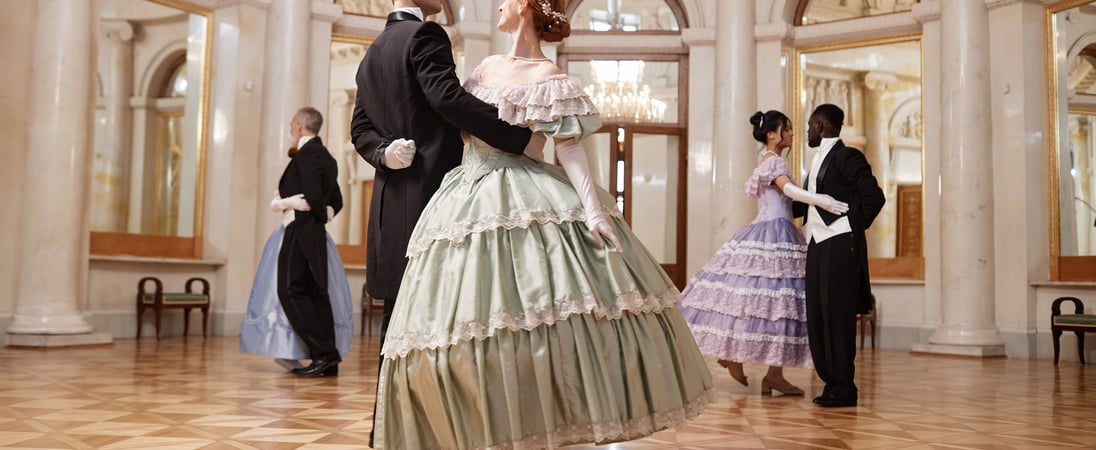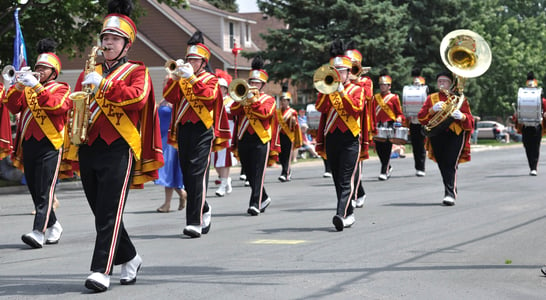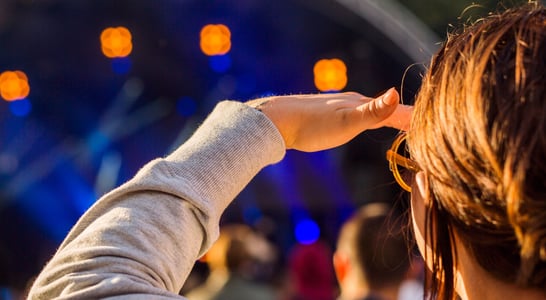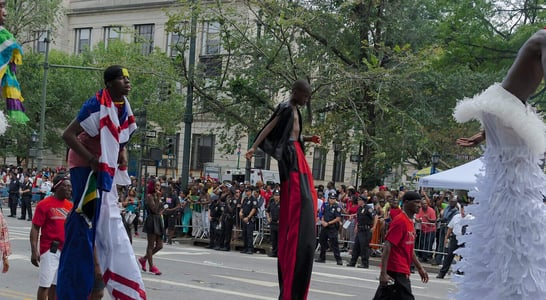
National Dance The Waltz Day
National Dance The Waltz Day is a unique celebration that honors one of the most elegant and historically rich dances: the waltz.
This special day falls on March 4th every year, providing a perfect opportunity for dance enthusiasts and novices alike to delve into the waltz’s charm and grace.
The day is dedicated to embracing the romance, beauty, and sophistication that the waltz brings to the dance floor, making it a beloved activity across generations.
The importance of National Dance The Waltz Day lies in its celebration of a dance that has deeply influenced the world of ballroom dancing and social customs.
Originally seen as a bold and somewhat scandalous dance due to its close-hold position and quick rotations, the waltz has evolved into a symbol of grace and harmony.
Celebrating this day encourages people to connect, learn new skills, and appreciate the historical significance of the waltz, which has been captivating hearts since its origins in the Tyrol region of Austria.
Why celebrate the waltz? The reasons are as fluid and graceful as the dance itself. First, it’s an opportunity to promote physical and mental well-being through an activity that combines artistry with exercise.
The waltz is about mastering steps and building connections and trust between partners, enhancing one’s mood, and fostering social bonds.
Furthermore, this day highlights the cultural and historical value of the waltz, encouraging people to explore its various styles, from the Viennese to the American style waltz, and to appreciate the skill and dedication of dancers worldwide.
History of National Dance The Waltz Day
National Dance The Waltz Day shines a spotlight on one of the most graceful and historic dances: the waltz. This special occasion is marked annually on March 4, inviting everyone to step into the elegant world of waltzing.
The day is not just about dance; it’s a celebration of romance, grace, and a dance form that has woven itself into the fabric of social customs and ballroom dancing across centuries.
The waltz’s origins are traced back to rural Austria, where it developed from folk music and dances in the Tyrol region.
Known for its distinctive 1-2-3 rhythm and elegant turns, the waltz initially stirred controversy due to the close contact between partners, earning it the label “forbidden dance.” Despite early resistance, its charm and elegance won over society, making it a staple in ballroom dancing.
Over time, the waltz has not only endured but flourished, evolving into various styles, such as the Viennese waltz, international standard waltz, and American style waltz.
It symbolizes connection, trust, and harmony, making it popular for significant moments such as wedding dances.
National Dance The Waltz Day honors this enduring dance, encouraging people to learn, celebrate, and enjoy the waltz in all its forms, from attending classes and hosting themed parties to enjoying live performances or simply sharing a dance with a loved one.
How to Celebrate National Dance The Waltz Day
Whether you choose to attend a waltz class, host a dance-themed party, or simply enjoy a performance, National Dance The Waltz Day is a day to celebrate the enduring allure and romantic spirit of the waltz.
Glide Into a Class
First off, why not waltz your way into a dance class? Studios everywhere open their doors to newbies and pros alike.
Picture it: graceful gliding across the floor, instructors breaking down the waltz’s whimsical whirls. It’s the perfect chance to dip your toes into something new or polish those rusting skills.
Throw a Themed Bash
Next up, how about hosting a waltz-themed soiree? Transform your living room into a ballroom with a few fancy touches. Invite friends to dress up and dance the night away.
Play classical waltz music to set the scene and sneak in a fun dance-off. Who says you can’t have a ball in your own home?
Waltz Under the Stars
For a sprinkle of romance, grab your partner for an evening waltz under the stars. Find a nice spot outdoors, whether it’s your backyard or a local park.
Bring a speaker to play those waltz tunes and dance as if you’re the only two in the world. It’s simple, sweet, and oh-so memorable.
Dive Into Waltz History
And for the curious souls, dive deep into the waltz’s rich history. It’s a dance that once shocked society with its close-hold moves.
Discover its journey from a “forbidden dance” to a beloved ballroom classic. Share fun facts with friends or on social media to spread the waltz love. After all, who doesn’t enjoy a good tale of scandal and success?
So there you have it, a quirky quartet of ways to celebrate National Dance The Waltz Day. Whether you’re stepping into a class or swaying under the stars, make sure to embrace the joy and elegance of waltzing.
National Dance The Waltz Day FAQs
Did the waltz ever face bans due to its intimate dance style?
Yes, in the early 19th century, the waltz was considered scandalous in some societies because of the close hold between partners.
In California, Mission priests banned the waltz until 1834 due to its “closed” dance position.
How did the waltz influence classical music compositions?
The waltz inspired many classical composers. Johann Strauss II, known as the “Waltz King,” composed “The Blue Danube,” a piece that remains iconic in classical music.
Are there unique waltz variations in different cultures?
Yes, various cultures have their own waltz styles. In Peru, the “vals criollo” blends traditional waltz rhythms with local musical elements, creating a distinctive dance form.
What role does the waltz play in modern celebrations?
The waltz often features in significant life events.
For example, in quinceañera celebrations, a traditional Latin American coming-of-age event, the young woman dances a waltz with her father to symbolize her transition into womanhood.
Is there a connection between the waltz and New Year’s traditions?
In Austria, the waltz holds a special place in New Year’s celebrations.
The strains of “The Blue Danube” mark the first moments of the new year, and Viennese balls are opened with a waltz preceded by the traditional proclamation “Alles Walzer.”
How did the waltz influence social dance norms?
The waltz introduced the concept of couples dancing in a closed position, which was revolutionary at the time.
This close hold became a standard in ballroom dancing, influencing many dance styles that followed.
Are there any myths or misconceptions about the waltz?
A common misconception is that the waltz is a slow dance. While some styles are slow, the original Viennese waltz is quite fast-paced, with dancers rotating rapidly around the floor.
How has the waltz been portrayed in popular culture?
The waltz has appeared in numerous films and TV shows, often symbolizing romance and elegance.
For instance, the “Waltz of the Flowers” from Tchaikovsky’s “The Nutcracker” is a staple in holiday performances and has been featured in various adaptations.
Are there any unique waltz competitions worldwide?
Yes, the Vienna Opera Ball, held annually in Austria, features a grand waltz performance.
Debutantes and their partners perform choreographed waltzes, showcasing the dance’s enduring elegance.
How did the waltz influence fashion trends?
The waltz’s popularity in the 19th century led to changes in women’s fashion.
Dresses became lighter and more flowing to accommodate the dance’s movements, marking a shift towards more practical yet elegant attire.
See what else is happening…
There’s always more going on every month at Days Of The Year. Here are our favorites this month!
Also on ...
View all holidaysPancake Day
Fluffy, golden discs of happiness that make mornings magical, there's nothing quite like a stack of pancakes to start your day off right.
National Sons Day
They may be mischievous at times, but their infectious laughter and boundless energy make every day an adventure.
Marching Band Day
Groups of musicians, drums thumping and brass blaring, creating an infectious rhythm that lifts spirits and infuses energy into any gathering.
We think you may also like...
National Cheerleading Safety Month
Ensuring spirited routines sparkle with confidence while avoiding unnecessary risks keeps the pep in cheer, making every performance a triumph.








